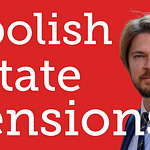In this Free the Power podcast, the IEA's occasional series on free market solutions to energy challenges, Chief Operating Officer Andy Mayer interviews Guy Newey, Chief Executive of the Energy Systems Catapult. The conversation explores the contentious debate over locational pricing in UK energy markets - a technical reform that could fundamentally reshape how Britain prices and distributes electricity. They discuss the transition from a centralised system of large coal and gas power stations to a distributed network of intermittent renewables, electric vehicles, heat pumps, and smart devices that requires millions of actors rather than dozens.
Guy explains how Britain's current single national electricity price is becoming increasingly inefficient as the system evolves, leading to billions in constraint costs where wind farms are paid to switch off while other generators are paid to switch on elsewhere. He advocates for zonal or nodal pricing systems that would create regional electricity prices reflecting local supply and demand, potentially offering Scotland some of the cheapest energy in Western Europe while incentivising efficient placement of generation and storage. The discussion covers fierce industry opposition from renewable developers concerned about investment uncertainty, the potential for £3-4 billion in annual system efficiency gains, and the successful implementation of similar systems in markets like Texas.
The interview concludes with an examination of the political challenges facing Energy Secretary Ed Miliband, who must balance Clean Power 2030 ambitions against industry warnings about slowed renewable investment. Guy argues that locational pricing could drive industrial revival, tackle fuel poverty, and position Britain as a leader in affordable clean energy. He emphasises that decarbonisation will only succeed at the necessary pace if clean energy solutions become cheaper and better than fossil fuel alternatives, making this pricing reform crucial for the UK's energy transition and economic competitiveness.











